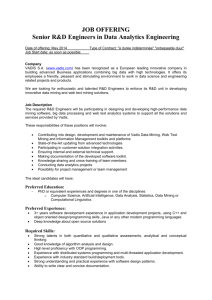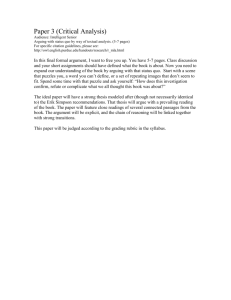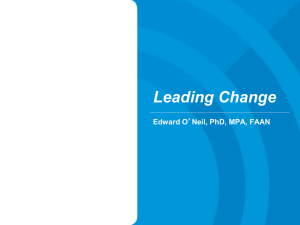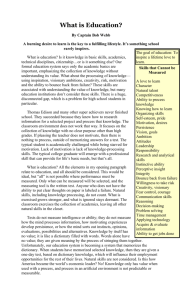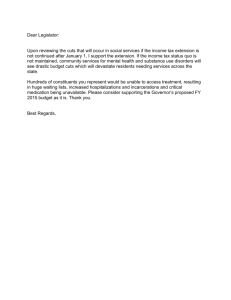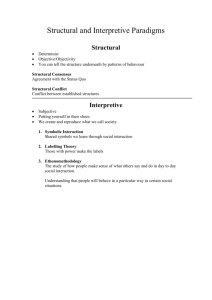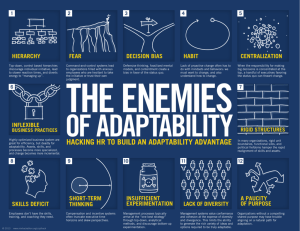Quo Vadis - Civil Engineering
advertisement
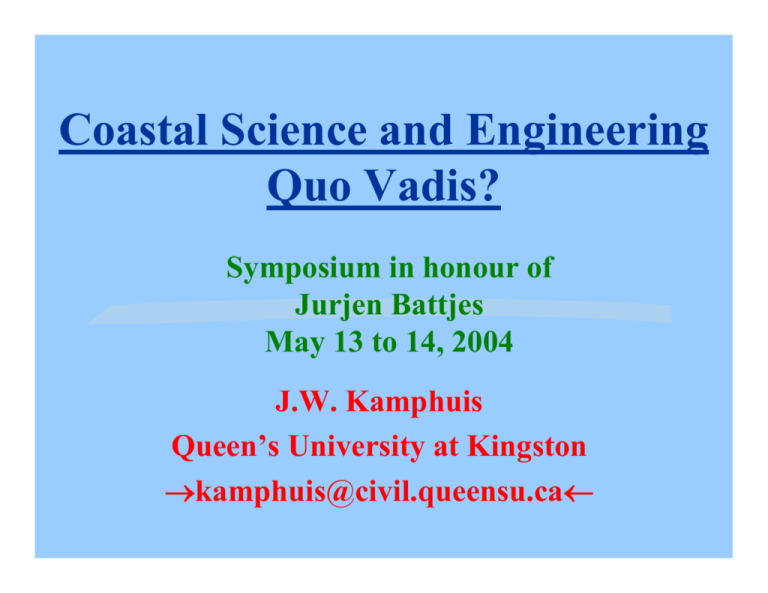
Coastal Science and Engineering Quo Vadis? Symposium in honour of Jurjen Battjes May 13 to 14, 2004 J.W. Kamphuis Queen’s University at Kingston →kamphuis@civil.queensu.ca← Abstract: This paper traces the development of coastal science and engineering and then tries to give some indication of a path into the future. May 2004 Quo Vadis? 3 Concerns Different – This paper is different from the other papers presented. Is this the place? Do we need this kind of historical analysis/peptalk? Difficulty – (2*3/2+2*3/4)=1/3 May 2004 Quo Vadis? 4 What? • • • • • • • This is a discussion. It is not a finished work – just a summary of some of my ideas. I can only present part of the material I have. I will (soon) post something: civil.queensu.ca This discussion needs all of us. I hope to generate some ideas I hope to hear from you May 2004 Quo Vadis? 5 The history of Coastal Science and Engineering is related to the history of civilization and societal development . May 2004 Quo Vadis? 6 Quick Review of some Concepts May 2004 Quo Vadis? 7 Quick Review Thinking (Western) Age of Providence – Please the god(s) and all is well Age of Enlightenment – Replace inscrutable laws of fickle god(s) with constant laws of nature, which can be studied and understood and in time we should be able to chart our own course. A change in model – Paradigm shift May 2004 Quo Vadis? 8 Quick Review Enlightenment resulted in: Systematic science to understand nature. Rapid expansion of knowledge about the laws of nature. Given enough time, we can understand everything and act accordingly to “improve the world”. The modern era has begun May 2004 Quo Vadis? 9 Quick Review But… : Philosophers such as Nietzsche and Heidegger began to question the “Yes we Can!” euphoria. This began in the late 19th Century It is a general perception today. This is the postmodern era. Everywhere, except in some areas of science and technology (and of course business). May 2004 Quo Vadis? 10 Quick Review Coastal Engineering grew up in the “Late Modern” age Wave forecasting for WW II landings Large expansion of facilities needed Shores and shore protection. ICCE began 1950. May 2004 Quo Vadis? 11 Quick Review Modern Aspects of Coastal Science and Engineering Given time and funding we could improve solutions and give accurate answers Funding was there The need for improvements to shores and facilities was there The computer arrived, increasing the euphoria May 2004 Quo Vadis? 12 Quick Review But then….. We began to distrust the basic tool of coastal engineering and research, the (hydraulic) model. Models had reached practical limits They could only provide answers up to a certain level of accuracy. Larger models would not produce better results and became too expensive for the clients. May 2004 Quo Vadis? 13 Quick Review And we found… There were no single, unique approaches and answers. Good coastal engineering is not necessarily considered good. This was our version of the end of modernity. May 2004 Quo Vadis? 14 Quick Review The End of Modernity Appears at different times in different disciplines. Philosophers – 19th Century Some Scientists and Engineers – 21st Century May 2004 Quo Vadis? 15 At the End of Modernity Three Keywords: Uncertainty Sustainability (on a world scale) Pluralism May 2004 Quo Vadis? 16 Where to in Education ? May 2004 Quo Vadis? 17 Modern Concept of Learning (Wolterstorff) It is a Communal activity Based on common human convictions (rational Consensus) of the players. We use our shared human capacities of Perception, Introspection, Reason To move toward a (higher) body of knowledge that also enjoys consensus. Single-Minded: Consensus ⇒ Consensus May 2004 Quo Vadis? 18 PostModern Concept of Learning: (Wolterstorff) • Consensus turns out to have been white, heterosexual, male, colonialist, whatever • There are other viewpoints ⇒ Introduces Pluralism • Many now say that all learning is “particularist and perspectival” • The old model of “properly conducted” learning collapsed. May 2004 Quo Vadis? 19 PostModern Aspects of (Higher) Education • Accessibility • Business • Universities and Colleges meet on common ground (universities ⇓) May 2004 Quo Vadis? 20 Direction in Education From: a hierarchical system: Recognised universities hire professors of repute who teach students through Structured lectures (+ tutorials) To: more flexible education with dialogue, focusing on Teaching theory + skills + relationships May 2004 Quo Vadis? 21 Direction in Education And to: Integrated learning (incorporates pluralism). Greater emphasis on design courses, teamwork, interdisciplinarity, communication, self-directed learning, problem solving. Seminars, workshops replace formal lectures May 2004 Quo Vadis? 22 That Fits Because: Students who: learned through Sesame Street clips, listen only to sound bites, are accustomed to < 4sec images. Cannot sit through a 50 min lecture anyway Even with slides, video and pizzaz May 2004 Quo Vadis? 23 That fits because: Students who have been coached (in music, sports, etc.) Respond well to project work guided by “resource persons”. May 2004 Quo Vadis? 24 That fits because: Students’ internet experience is useful for multi- input and multi-tasking Power Point and Internet fit with case studies, projects, pictures and practical examples. May 2004 Quo Vadis? 25 But… There is a danger: “knowledge” suffers at the hands of “experience”. Engineering is different from hockey. Hockey theory? Fluids theory! May 2004 Quo Vadis? 26 ASCE “Civil Engineering Body of Knowledge for the 21st Century” May 2004 Quo Vadis? 27 Where to in Research ? May 2004 Quo Vadis? 28 Research is: Present day research tends to be refinement of what we know. Much of our research is expected to provide new insight through: New and better measurements More sophisticated computer programs Lack of reading has caused the wheel to be re-invented. May 2004 Quo Vadis? 29 Research is: Present trend is toward research factories: They are businesses that must produce a line of product (papers, HQP’s), They cannot be too novel – dead ends don’t pay off, May 2004 Quo Vadis? 30 Where to in Research ? We need more innovation, particularly now, at the turn of an era. We need a culture change from safe, comfortable, à la moderne, mechanistic. Paradigm Shift. May 2004 Quo Vadis? 31 Where to in Research? We need more pluralistic viewpoints; more inter-disciplinary and integrated research Engineering research needs less emphasis on diagnosis and more emphasis on cure. We need more application More development More engineering May 2004 Quo Vadis? 32 Authority Modern: Governments Funded (research and education) Managed (research and education) Comfortable employer. Postmodern: Pluralistic mix of stakeholders, property owners, environmental groups, tourism industry and government. Vague (uncertain) instructions. May 2004 Quo Vadis? 33 Quo Vadis ? Accept that we live in a postmodern culture. Accept uncertainty In authority, direction, results, solutions. Learn to communicate postmodernity and uncertainty. Particularly to clients who do not want to hear this. May 2004 Quo Vadis? 34 Quo Vadis ? Recognise that there are no ultimate solutions – just optimum solutions Optimisation of solutions includes not just: Financial Client satisfaction But also: Sustainability (on a world scale) Pluralism - Biological, sociological, etc impacts) May 2004 Quo Vadis? 35 Quo Vadis ? Teaching and Research needs to become: More innovative (less extension of Status Quo) Move from diagnosis (analysis) to cure (synthesis). May 2004 Quo Vadis? 36 Summary We must realise that times are a-changing (have changed actually) – a paradigm shift from modern to postmodern is a useful concept to include in our thinking. We need to change with the times in teaching, research, science and engineering. We need to adapt to different authority. May 2004 Quo Vadis? 37 Summary We need to understand, incorporate and communicate Uncertainty Sustainability Pluralism. We need to get clients used to these. We need to address real problems instead of just perfecting what we know. May 2004 Quo Vadis? 38 Summary In this time of upheaval in our thinking and doing, we must remain hopeful and confident. Yes, we can!, but differently. Times of change are times of discouragement. opportunity ! May 2004 Quo Vadis? 39

